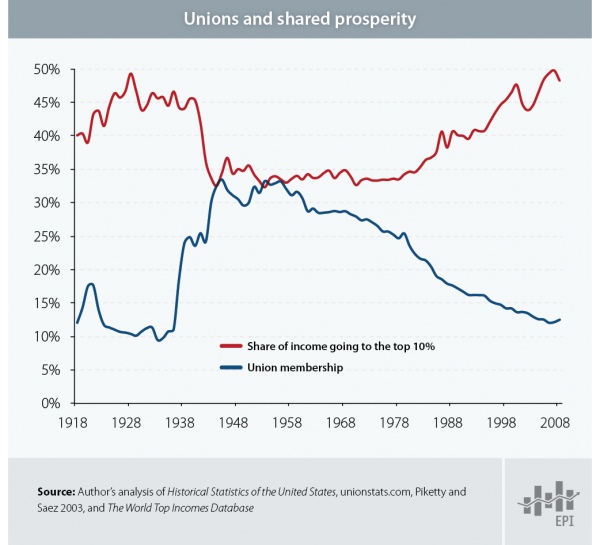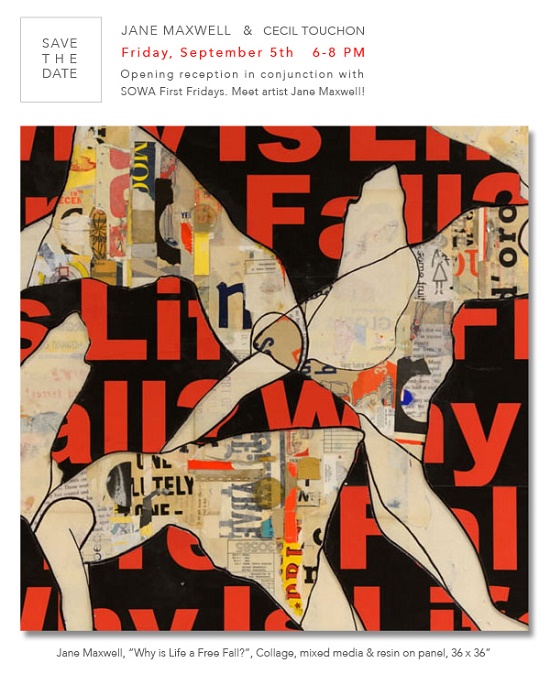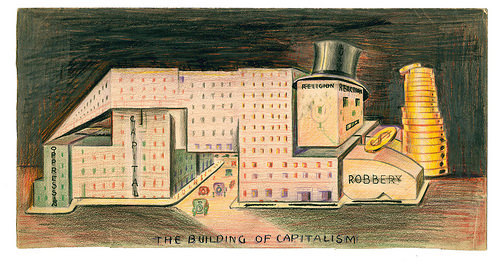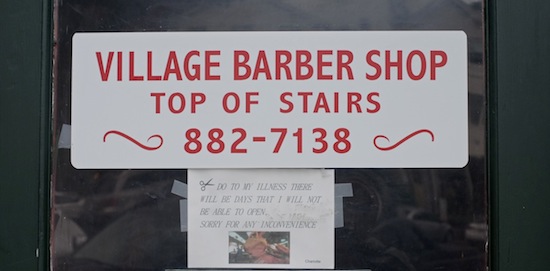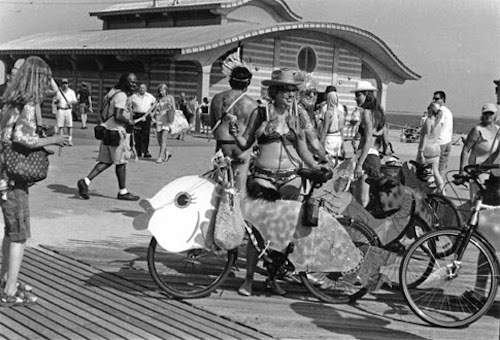A couple of times each summer, the family station wagon transported us an hour or so, from Newport across the Mount Hope Bridge, through Bristol and Warren to the capital city of Providence. By Rhode Island standards, we had traveled halfway around the world.
These odysseys were generated by a visit to my Aunt Teresa in the Fox Point section, a woman with numerous ailments, none of which affected her ability to talk. I was left in the company of a pudgy, desultory cousin with greasy hair who crammed himself into a couch and stared at the TV. Nobody minded if I wandered the neighborhood by myself.
There was a drugstore I would head off to, to buy comic books or a James Bond paperback. Maybe wax lips, if they had them. On the way, I passed a cracked cement driveway shaded by trellised grape leaves. This trellis was made of the same kind of pipe that formed the top rail of the chain-link fencing that ran alongside the driveway and in front of the green, asbestos-shingled house.
In the shade of the grape leaves sat an old man in a low aluminum lawn chair with nylon webbing. He wore a beat-up straw hat and suspect trousers. At his feet to one side of the chair was a hibachi grill with sausage and peppers roasting. On the other side of the chair a radio was broadcasting the Red Sox game.
Seeing me staring, he said, “You want some chourico?”
Because he pronounced this Portuguese word for sausage in the same earthy way as my Azorean mother, I accepted. He speared me a piece that I plucked off the prongs of the long fork.
“Good, eh?” he said, watching me chew.
It was delicious, better than my mother made.
“It’s the coals,” he said. “Here, have another.”
He smiled at me. His teeth were good for an old man.
A young woman with a dark tan walked by. She smiled and waved and the old man nodded and tugged the brim of his hat.
“You don’t want your wife to look like leather,” he said, following her with his eyes. “That’s what she will look like one day. Look and feel like leather. You don’t want that.”
Later, in my Aunt Teresa’s kitchen, I asked my parents: “Can people turn into leather?”
“Why would you say that?” asked my father, and I told him about the man in the driveway.
“Oh,” said my Aunt Teresa. “He’s been talking to the Old Portagee. Never mind him; he just sits there all day.”
I didn’t think that was so bad. I spent many hours in the summer on my bed reading. What was the difference, really?
On subsequent trips over the years, I always stopped by to visit the Old Portagee.
“I only wear Brooks Brothers shirts,” he told me. “They wear like iron!” and he pulled at the sleeve of his faded blue shirt, basket-woven with white, the button-down collar frayed. “This one I’ve had more than 40 years!”
In addition to the chourico on his hibachi, the Old Portagee always had homemade wine to offer. Sometimes young women in the neighborhood would stop by, and he would pour them a glass or two. Rarely, I noticed, did men of any age stop by to talk to the Old Portagee.
“Men,” he said, “are lions. When they meet another lion, they know to keep their distance. If a man has a woman, a beautiful woman, then the other lions only come around for the woman, no matter what they say.”
“Do you have a woman?” I asked him.
“Once,” he said, pulling on the sleeve of his shirt. “Once the Old Portagee had the woman of all women,” and he looked up at the grape leaves shading us, and the plump red grapes ripening.
His wine was the best I’d ever tasted and he told me that he would give me the recipe before he passed.
He reached down to yank a dandelion that flourished in a crack in the cement but stopped. He caressed the yellow flower with his thumb.
“Remember,” he said, “You don’t have to go far to learn what you need to know. Just far enough.”
“And what else?” I asked.
“What else? Nothing ever changes. All change is false change.”
“But that doesn’t make any sense!” I exclaimed.
“If you say so,” smiled the Old Portagee. “But you might want to think about it.”
One night, deep in summer, the Old Portagee and I were sitting in his driveway drinking wine, blending into the evening shadows and eating fava beans out of the pod.
“Remember to keep the women happy,” he said. “Either do not let them into your life, or keep them happy. There is no middle road.”
He pulled a black and white photograph with crinkle-cut edges out of his Brooks Brothers shirt. It was a woman sitting sidesaddle on a horse. She was attired in the garb of the 1930s.
“Who is she?” I asked.
“A woman of Providence,” grinned the Old Portagee. “We’ll be riding together again soon.”
Shortly after I graduated from college, I received a hand-addressed envelope in the mail, the penmanship elegant and cursive. Inside was a folded piece of paper with the Old Portagee’s wine recipe. Beneath it was written: “The Right Woman, The Right Wine, The Right Chourico. T.O.P.”
Charles Pinning, an essayist, is the author of the Rhode Island-based novel “Irreplaceable.”




